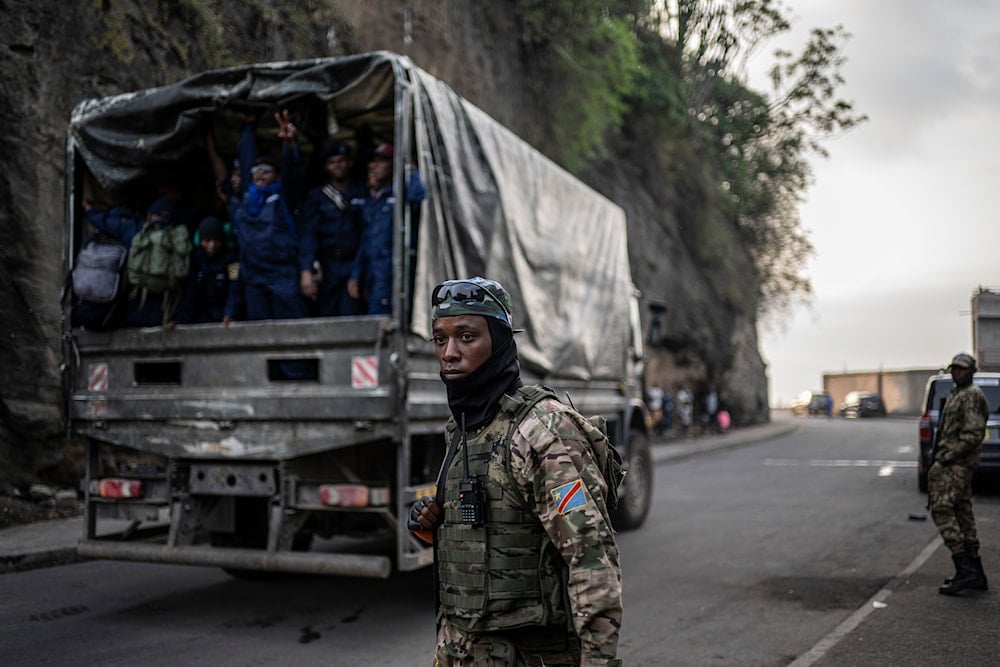DR Congo, Rwanda to sign peace accord on June 27
The Democratic Republic of Congo and Rwanda have initialed a peace agreement to end the violence in eastern DRC, with US and Qatari mediation.
-

Former members of the Armed Forces of the Democratic Republic of Congo (FARDC) and police officers who allegedly surrendered to M23 rebels arrive in Goma, Congo, on February 23, 2025. (AP Photo/Moses Sawasawa)
The Democratic Republic of Congo and Rwanda have taken a significant step toward ending the long-running conflict in eastern DRC, by initialing a peace agreement that is set to be formally signed on June 27. A joint statement released Wednesday confirmed the progress made following several days of negotiations in Washington.
The conflict, rooted in decades of unrest and armed group activity in the mineral-rich eastern provinces of the DRC, has recently intensified following renewed operations by the M23 armed group.
The newly initialed text builds on a declaration of principles signed in April and includes provisions affirming respect for territorial integrity and a prohibition of hostilities. The agreement also outlines steps toward the disengagement, disarmament, and conditional integration of non-state armed groups.
Read next: What is happening in the DRC?
The joint statement, released by the DRC, Rwanda, the United States, and Qatar, described the outcome as the result of "constructive dialogue regarding political, security, and economic interests."
The negotiations were mediated by the United States and Qatar, and the formal signing ceremony is scheduled to take place in Washington on June 27, with US Secretary of State Marco Rubio set to attend.
M23 offensive escalated tensions in early 2025
The M23 armed group, which the United Nations says receives support from Rwanda, launched a major offensive in early 2025. The group seized control of the city of Goma in January, followed by Bukavu, and has since established administrative structures in the territories under its control.
Thousands of people have been killed during the renewed fighting, while countless others have been displaced, adding to the humanitarian burden in the region.
While Kigali denies providing military backing to the M23, it maintains that its national security has long been threatened by groups like the FDLR, an armed faction formed by Hutu extremists involved in the 1994 Rwandan genocide.
Despite the complexity of these longstanding grievances, the initialing of this agreement marks a rare moment of progress between the two neighboring states. The formal signing later this month in Washington could represent a pivotal turning point in efforts to bring peace to eastern Congo.
It is worth noting that Rwanda withdrew from the Economic Community of Central African States (ECCAS) as part of the escalation in regional diplomatic tensions tied to ongoing violence in eastern Congo. The move came after the 11-member regional bloc declined to transfer its rotating chairmanship to Rwanda during a meeting on June 8 in Equatorial Guinea, opting instead to extend Equatorial Guinea’s term.

 3 Min Read
3 Min Read










